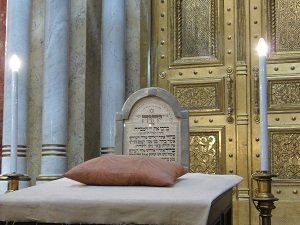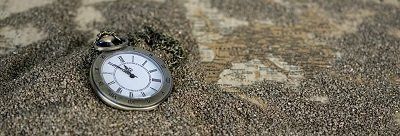Jewish Funeral Customs
Jewish Funeral Traditions
Jewish funeral traditions follow a particular set of rituals and customs when someone passes away. Below we have curated a selection of helpful information to help you better understand these customs and what to do when someone of the Jewish faith passes away.
After Death Has Occurred
After death occurs, Jewish law states that the body must be interred as soon as possible. This means families must begin planning the funeral service immediately. In many cases, the service is held the following day or the day after that to allow distant relatives to travel.
From the time of death, until the body is buried, it is not allowed to be left unattended. Typically, family members will take turns staying with the body to enable others to assist with preparations. If necessary, a Rabbi or the funeral home can help coordinate a “shomer” or guardian to stay with the body until it is interred.
Preparing The Body
Before the body can be buried, it must be washed, purified, and dressed. It is a ritual that is followed to ensure the body is cleansed. The process begins by cleaning the body. The body of the deceased may only be washed by those of the same sex. After it is washed, it is purified. This is done by submerging the body in a bath or by pouring a continuous stream of water over it. Finally, the body is dried and then dressed in a plain white shroud.
The body is then placed in a Jewish casket. A Jewish casket is a plain wooden box that is free of metal. This allows for the container and the body to decompose and return to dust as stated in the Book of Genesis. Once placed in the casket, it must remain closed at all times except for identification.
Jewish Funeral Service
A Jewish funeral does not hold a visitation or wake before the funeral. Family members participate in “keriah” where a part of clothing or black ribbon attached to their clothing is torn. The actual funeral service may be held at a funeral home, synagogue, or the grave site. There are no flowers present at the funeral; donations are made instead to a charity in the deceased’s name.
During the actual service, prayers are led by a Rabbi, psalms are read, and one or more eulogies delivered. After the service, the body is transported to the gravesite to be interred. The Rabbi will again say a few prayers before the casket is buried. Mourners will then each take a turn placing dirt on the grave either by hand or with the back of a shovel.

Jewish Mourning Period
After the body is interred, family and friends will gather at a family home or synagogue for a reception. Friends and others from the synagogue community help prepare food.
The two periods of Jewish mourning are called “Shiva” and “Shloshim”.
Shiva
means seven and lasts the seven days following the funeral. The family must gather each day to mourn and pray together. A Shiva candle is lit the first day and burns for the duration of the week. During this time, the family does not attend work/school or participate in their daily routine of their normal life.
Shloshim
is the second period of mourning and lasts until thirty days after the funeral. During this time, family members return to their daily lives but must recite the Mourner’s Kaddish each day. The end of Shloshim marks the end of the formal mourning period except in the case of a parent dying. In this circumstance, the mourning period lasts for a full year.

If you’re interested in learning more about Jewish funeral traditions or holding a Jewish service at our Manhattan funeral home, please contact us
for more information.